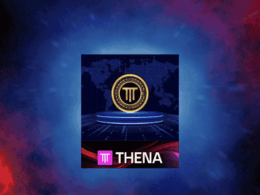Table of Contents Show
Malaysia’s Anti-Corruption Commission (MACC) is making bold strides to date to build stronger governance and a unified fight against corruption by integrating blockchain and AI into its monitoring systems. The hope is on increased transparency, accountability, and efficiency in these areas plagued by probable cases of corruption such as law enforcement, public procurement, and subsidy programs.
How Blockchain Improves Transparency
Blockchain technology is known for its immutability and decentralized nature, which makes it a good solution to curb corruption. Through blockchain, financial transactions and procurement processes will be recorded on a tamper-proof ledger, hence minimizing the risks of data manipulation and fraud.
With blockchain, all transactions can be traced and verified in real-time, and public funds can be used for their intended purposes. This technology will also give a transparent audit trail that makes it significantly harder for corrupt practices to go undetected.
The Role of AI in Fraud Detection
This, in turn, complements blockchain by allowing the real-time analysis of data and fraud detection. AI-powered algorithms can process a vast amount of financial and transactional data and identify anomalies and suspicious patterns that might indicate fraudulent activities.
Tan Sri Azam Baki, the Chief Commissioner of MACC, believes that AI will help Malaysia to detect corruption cases better because it can recognize anomalies and raise red flags over possible fraud. Authorities will be able to take prompt action and avoid financial losses and ensure that corrupt activities do not continue.
A Global Trend in Anti-Corruption Efforts
Malaysia’s adoption of blockchain and AI is part of a broader global movement toward technology-driven anti-corruption measures. Many countries are exploring the potential of these technologies to promote transparency and integrity in governance.
For example, Estonia has implemented blockchain successfully in its public records system to ensure that data remains secure and tamper-proof for the government. Similarly, AI-driven systems are being implemented in countries such as the United States and the United Kingdom for the detection of financial fraud and regulatory violations.
Challenges and Future Prospects
While much promise is seen in the blockchain-AI integration, its deployment brings along cumbersome roadblocks. First, these systems can be very expensive to develop and maintain. Additionally, not all groups will be able to accept the change easily since some people benefit from the corrupt structures in place. Secondly, the effective use of such technologies requires efficient personnel and upgrades.
Still, the fact remains that Malaysia’s move to technological solutions in its campaign against corruption is profoundly commendable. The use of blockchain and AI will take the nation proactively to greater transparency, effective governance, and a society free of corruption.
It marks a precedence for other countries by Malaysia adopting blockchain and AI to combat corruption. With the implementation of blockchain that ensures integrity of data, the country becomes much more powerful with AI-enhanced fraud detection at all levels to combat corruption. If successfully implemented, it will be an exemplary model for other governments who would like to make their institutions more accountable and trusted.
Stay Updated With the Latest Crypto News
For the latest updates, stay connected with us!
👉 Connect with us on LinkedIn: Latest Crypto Update
👉 Follow us on Instagram: Latest Crypto Update
👉 Follow us on Twitter: LCU on Twitter
👉 Subscribe to Our Newsletter for the latest crypto news and market insights.
Disclaimer:
The information provided on this website is for informational purposes only and may include third-party opinions or sponsored content. We do not offer financial advice. Before engaging with any exchange or individual, please conduct your own research and make decisions responsibly. For more details, review our Terms & Conditions.










